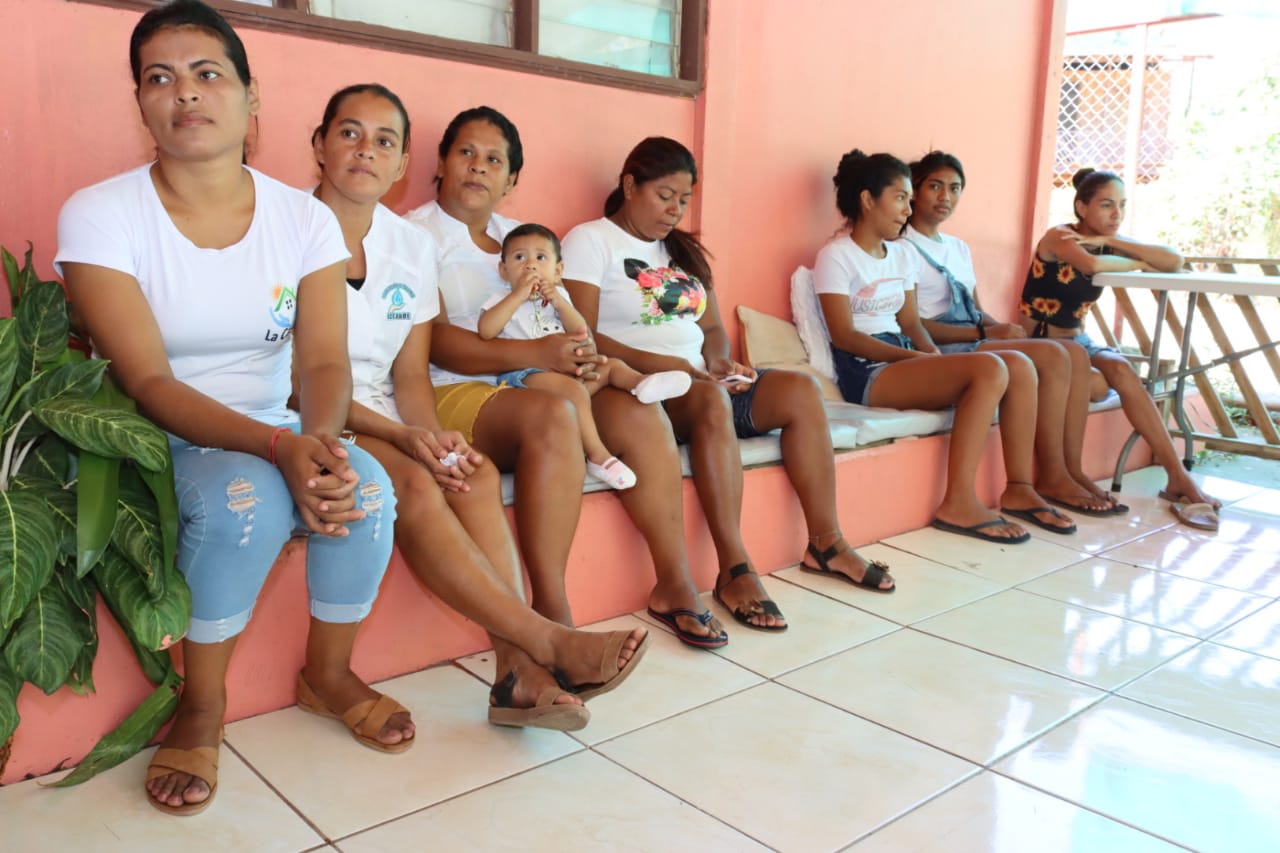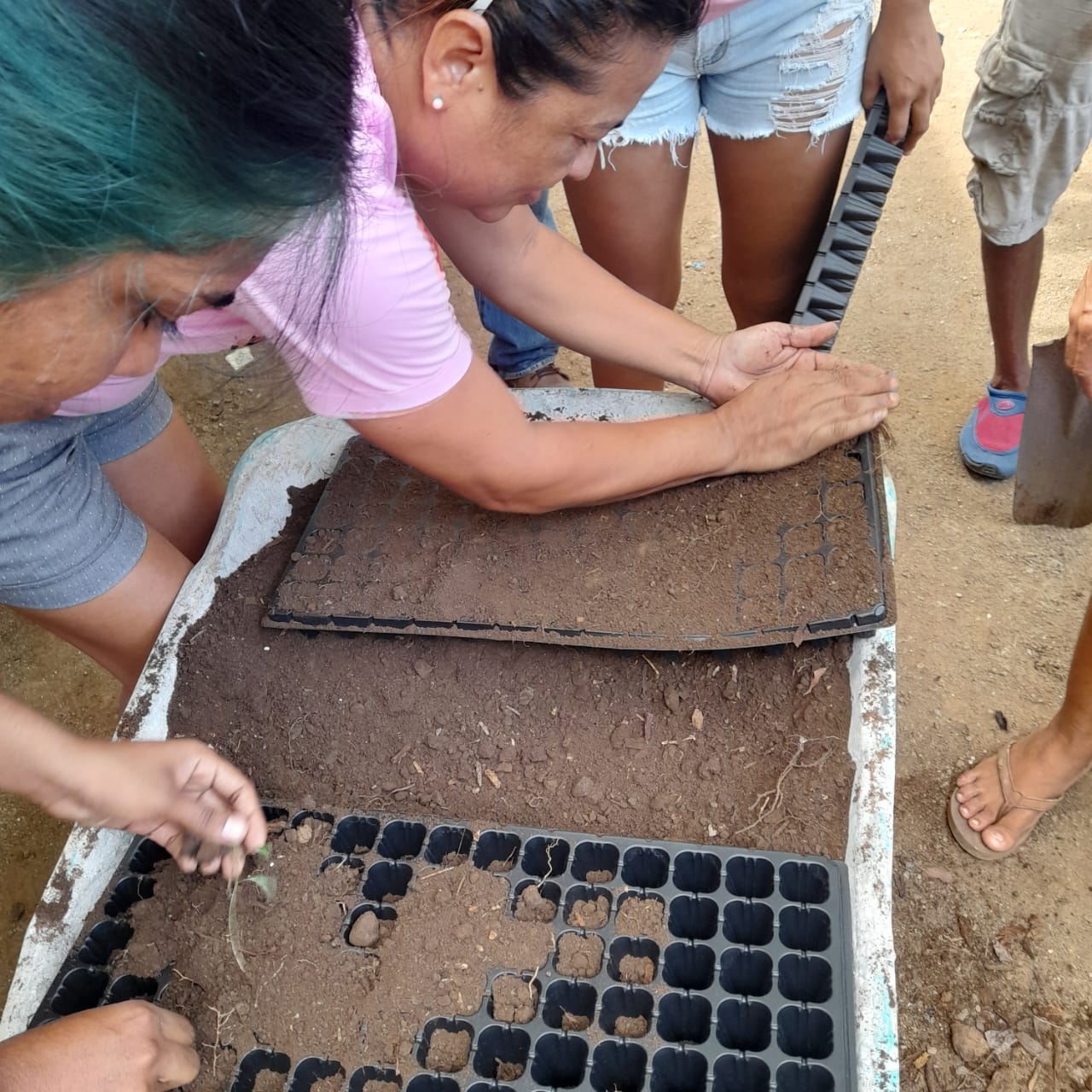Izcande: Socioeconomic Opportunities from the “Isla Bonita”
Through agricultural projects like egg production and organic vegetables, Izcande ensures food security in the community and exports its products to nearby areas, offering freshness, quality, fair prices, and sustainable practices


By Flor Monestel
At dawn, a boat transports people to the “La Penca” dock, which is 15 minutes away; depending on the water level, they may reach the shore; otherwise, they must walk through the marine mud, clean their feet upon reaching land, and continue their journey. At sunset, all boats wait for the tide to change to start the journey back to the island.
Isla Venado (known as “Isla Bonita”) is a small territory located in the Gulf of Nicoya (Puntarenas), in the Pacific Ocean of Costa Rica. Around 1,300 people live there, and about 90% depend on small-scale artisanal fishing. The common denominator: all the inhabitants depend on the tides to leave or enter the island.

In Costa Rica, the situation faced by women in coastal areas, especially on the islands, is challenging; many of them are in vulnerable conditions and even extreme poverty, due to a reality that lacks social and economic opportunities. From the lack of a pier to infrastructure for better rural and tourism development, these are some of the needs that negatively impact the economic growth of the 400 families living there.
This panorama is described by Mariana Barrios, community leader and president of the Isla Venado Women’s Association (Izcande); however, she adds that: “We are privileged to be here; despite the difficult times we live in and our daily dependence on the tides, the entire community is very united and we always move forward together. Thanks to the pandemic, we realized how supportive we could be; we never stopped producing or fishing to ensure the sustenance of each family. We are aware that the socioeconomic conditions are not the best, but with what we have, we have managed to lead a dignified life. That’s why whoever leaves the ‘Isla Bonita’ always comes back. Our roots are here.”
Faced with these socioeconomic challenges, Izcande was born in 2015. Composed of 15 associated women and around 50 volunteers, between 15 and 88 years old, these entrepreneurs created their center for the production and commercialization of chicken eggs, broiler chickens, and organic vegetables, understanding that they could not rely on artisanal fishing. Today, they ensure food security for the entire community.
Izcande started with 30 hens and today has 500; in addition, they have reached a total of 700 m² cultivated with their vegetable projects. “For families, it is difficult to live from a single productive activity, so the Association became an opportunity to generate work, economic income, and sustenance for the women and their households. With these new productive options, we also contribute to the sustainability of marine resources and climate change,” says Mariana.
The work is divided among all the associates, including weekends. For egg production, the work starts at 5:30 a.m., with checking the chicken coops, cleaning the drinkers and feeders, changing water and food, collecting, and storing the eggs. The eggs are classified into small, medium, large, and fragile, each size has a different price, with the goal that people can access the product at a price they can afford. Later, orders and delivery dates are checked, quality is certified, and the orders are packed for delivery.
For broiler chickens, the same process of checking, cleaning, and feeding is carried out, with the difference that the chicken must be sold live to the buyer; only for elderly or disabled people is the chicken delivered ready. Izcande has the Veterinary Operations Certificate (CVO) from the National Animal Health Service (SENASA) and the Small and Medium Agricultural Producer (PYMPA) certificate from the Ministry of Livestock and Agriculture (MAG), which allow them to carry out this activity.
The work with vegetables requires the effort of all the women, as it is meticulous and detailed. Seedlings need to be prepared with fertilizer for the soil and the seeds to be harvested; once ready, the germination process is monitored for planting, while in parallel the land is prepared for cultivation, and irrigation piping is installed.
All the products sold are fresh, of quality, at fair prices, and made with sustainable practices. Locally, they work with the National Production Council (CNP) to supply the two schools, the high school, and the Center for Education, Nutrition, and Comprehensive Child Care (CEN-CINAI).
Among the sustainable activities promoted by the organization are the reuse of solid waste, no burning of garbage; composting and fertilizers from poultry waste; the use of well water and rainwater; tree planting and protection of the island’s wetlands. The homes of the women who are part of the Association use solar or wood stoves and make rational use of electricity and water.
Cooperation for rural development
The Association cannot offer a fixed salary due to economic commitments they hope to complete by 2025; however, they pay around US$3 per hour for the work done. It was through donations from the government and international cooperation that they managed to start the Izcande project; they also have 2 bags of 50,000 liters for rainwater harvesting and have a small office and kitchen.
In 2020, they received a panga, a kind of small boat, and an outboard motor from the Institute of Rural Development (INDER) and the Motor Rural Strategy, contributing to improve the commercialization of their products to Lepanto, Isla Caballo, Isla Chira, and Isla Venado.
As part of collective empowerment, Izcande members have received various trainings, including productive management, crop assistance practices, agricultural production techniques, organic farming, poultry farming, proper solid waste management, food handling, and organizational and managerial strengthening.
Recently, they have been involved in initiatives related to rural tourism. Apart from Izcande, there is a project on Isla Venado focused on organic farming, oyster farming, and a floating restaurant. This has made more people want to visit and learn about the processes carried out in each activity, promoting talks and guided tours.
Izcande means “raindrops” in the indigenous Costa Rican dialect; it is in honor of the desire to cultivate and prosper the land with the effort of the women of the Association that the name is celebrated.


If you are interested in purchasing Izcande products, you can contact them through the following channels:
Facebook: https://www.facebook.com/remeppi/
E-mail: asodemuiz15@hotmail.com
Tel: +506 8810-5667 / +506 8640-9197

